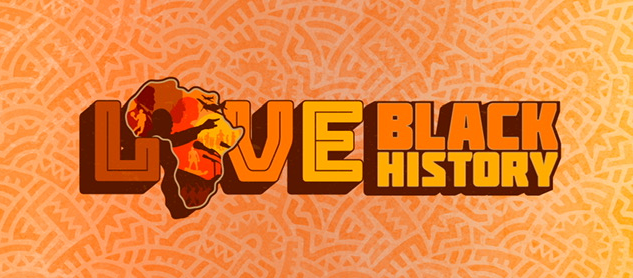“We die. That may be the meaning
of life. But we do language. That may be the measure of our lives.” Toni
Morrison
For almost half a century, Toni
Morrison has been known for wielding words like a weapon
to awaken the sleeping conscience, sowing them as seeds to help the stunted grow
and skillfully mixing them as a balm to help the wounded heal.
And though she may be gone, because of
the words she left behind, she will never be silent.
Morrison, 88, died Monday night
at Montefiore Medical Center in New York, publisher Alfred A. Knopf said.
Her family released this
statement to the media: In a statement released by Princeton University, where
she taught, the author’s family said that after a short illness, “our
adored mother and grandmother, Toni Morrison, passed away peacefully last night
surrounded by family and friends. She was an extremely devoted mother,
grandmother, and aunt who reveled in being with her family and friends,”
the statement said. “The consummate writer who treasured the written word,
whether her own, her students or others, she read voraciously and was most at
home when writing. Although her passing represents a tremendous loss, we are
grateful she had a long, well lived life.”
On Tuesday, authors and artists, editors
and historians as well as other luminaries pay tribute to the American author.
They were joined by thousands of her readers on Facebook and Twitter who spoke
of her lasting impact on their lives.
“In the beginning was the Word. Toni Morrison took the
word and turned it into a Song of Solomon, Sula, Beloved, Mercy, Paradise,
Love and more,” Oprah Winfrey tweeted. “She was a magician with language,
who understood the Power of words. She used them to roil us, to wake us, to
educate us and help us grapple with our deepest wounds and try to comprehend
them. She was Empress-Supreme among writers. Long may her WORDS reign!”
Morrison, who was best known for her bestselling
and Pulitzer Prize winning novel Beloved, has been a guide to others
said Historian Henry Louis Gates Jr.
“For nearly half a century, we have been
looking to Toni Morrison for guidance — to help us think, through literature,
as we find our way through the world. With grace and wisdom, she respected,
represented and rendered the beauty and complexity of the black experience,”
Gates said, according to The New York Times.
Born Chloe Ardelia Wofford on February 18, 1931 in
Lorain, Ohio. She became a Catholic when she was 12 years-old and was baptized
as Anthony. She then gained the nickname, Toni. An avid reader, Morrison was a
fan of Jane Austen and Leo Tolstoy. She grew up listening to her parents
telling traditional African American folktales and ghost stories.
Before she wrote her first novel, Morrison was an editor
who sought and found new voices, diverse voices – bringing
black literature into the mainstream. She became Random House’s first black
woman senior editor in the fiction department.
Among the books she worked on was
Contemporary African Literature, a compilation of works that included contributions
from Nigerian writer Chinua Achebe and South African playwright Athol Fugard.
She also fostered a new generation of African American authors before taking
her place among them.
Still, one of her best sellers was “The
Black Book,” an anthology of artifacts that documents black life in America
from the time of slavery to the 1970s. It included slave auction notices,
lynching photos, blackface advertisements and a clipping from an 1856
newspaper, according to the Los Angeles Times.
It told the story of Margaret Garner, a
runaway. As she was about to be captured, Garner killed her three children,
believing death was preferable to captivity.
Morrison wondered what could lead a
mother to commit such a crime. She answered that question with her bestselling
novel about the legacy of slavery, Beloved, according to the LA Times.
But it wasn’t her first work.
“Toni
was already 39 when she published her first novel, and she knew what she was
doing,” Robert Gottlieb at Knopf said, according to The New York Times. “One of
the remarkable qualities of “The Bluest Eye” is its calm confidence, “Sula”
was perfect in structure and tone — like a superb sonnet. “Song of Solomon”
was an explosion of energy and daring. “Beloved” was simply a
masterpiece. And so, it went.”
Gottlieb would go on to edit most of
Morrison’s novels. She also wrote Tar Baby, Jazz, A Mercy, Home and
God Help the Child.
She also wrote children’s literature with the
younger of her two sons, Slade Morrison, who died of pancreatic cancer in 2010
when he was 45. They include: The Big Box, The Book of Mean People, Peeny
Butter Fudge and Please, Louise.
Morrison obtained her Bachelors of Arts
from Howard University in 1953 and Masters of Arts degree from Cornell
University two years later. She taught English at Texas Southern University in
Houston and then at Howard, inspiring others.
She became the first black woman of any nationality to
be awarded the Nobel Prize in Literature, which she obtained in 1993. And when
Morrison was awarded the Presidential Medal of Freedom, then-President Barack
Obama said, “Toni Morrison’s prose brings us that kind of moral and emotional intensity that few writers ever attempt.”
After learning of her death, he shared
a picture of her sitting in a chair in the White House, smiling as she looked
up at him.
“Time is no match for Toni Morrison,”
Obama said Tuesday on Facebook. “She sometimes toyed with it, warping and
creasing it, bending it to her masterful will. In her life’s story, too, she
treated time nontraditionally.
“Toni Morrison was a national treasure.
Her writing was not just beautiful but meaningful – a challenge to our
conscience and a call to greater empathy. She was as good a storyteller, as
captivating, in person as she was on the page. And so even as Michelle and I
mourn her loss and send our warmest sympathies to her family and friends, we
know that her stories – that our stories- will always be with us, and with
those who come after, and on and on, for all time.”
“What a gift to breathe the same air as
her, if only for a while,” he tweeted.
Author
Tayari Jones said Morrison, “is the greatest chronicler of the American
experience that we have ever known,” according to The New York Times. “Now that
she is gone and we are facing a moral dilemma greater than any that I have seen
in my lifetime, her Nobel acceptance speech is as haunting and urgent as ever.
In that speech, she tells the story of an old woman who is taunted by a pack of
boys who hold a bird. She is blind, but is known to have second sight, and they
challenge her to tell her if the bird is alive or dead. The old woman says
simply, ‘The bird is in your hands.’ And this in many ways could be her parting
message to us now.”


 Black History5 years ago
Black History5 years ago
 Black History6 years ago
Black History6 years ago
 Black History4 years ago
Black History4 years ago
 Black History5 years ago
Black History5 years ago
 Black History5 years ago
Black History5 years ago
 Black History6 years ago
Black History6 years ago
 Black History9 years ago
Black History9 years ago
 Black History5 years ago
Black History5 years ago


























